Where were we? I searched for a familiar landmark and found my father’s commissariat, an immense, brooding building. I was far from home, but maybe I could get a ride with Papa if he was still at work. I scanned the street for his car; instead, I found him, fedora low on his brow, some woman on his arm. Perhaps he was consoling the victim of a crime, a shopkeeper who’d been robbed. I noticed the name of the building behind them, the Normandy Hotel. No, she was a receptionist or a maid. Papa grinned at something she said, and kissed her, not on each cheek, but full on the mouth.
How could he do that to Maman? The harlot wasn’t even pretty with her thinning hair and door-knobby cheeks. Mercifully, the light turned green, and the bus lumbered over the cobbles, taking me away.
Feeling ill, I alighted at the next stop. On the walk home, I tried to make sense of what I’d seen. How long had this been going on? What had Maman done to deserve this? What hadn’t she done? I flipped through the pages of my memory. One evening at dinner, Maman had said that Papa preferred to “dine out.” Was an affair what she meant?
In the foyer, I dropped my book bag and bellowed Rémy’s name. He was reading Of Mice and Men . “Steinbeck can wait,” I said. We went to our secret place, away from our parents, away from the world, under my bed where the light didn’t quite reach. Rémy, then I, scooted along the parquet. It felt good to slip back into childhood, to the last place anyone would search for us.
Having trouble catching my breath, I sputtered, “Papa. With a woman. Not Maman.”
“Why are you surprised?”
His nonchalance hurt as much as seeing Papa with the harlot. “You knew? Why didn’t you say?”
“We don’t have to tell each other everything.”
Since when?
“Important men have mistresses,” he continued. “It’s a status symbol, like a gold watch.”
Did Rémy really believe that? Did Paul? Papa’s affair felt like a betrayal, not just of Maman, but of our family. How could Rémy not see that? I glanced over, but I couldn’t make out his expression. I didn’t know what he was thinking. I didn’t know what to think. My fingers clung to the mattress coils.
“Bitsi said part of growing up is realizing parents have their own lives, their own desires,” he finished.
Bitsi said.
I remembered the other time Rémy and I had not seen eye to eye. The summer we turned nine, because of a lung ailment, he stayed in bed, and Maman coated his gaunt chest with mustard plasters to ease the congestion. I stayed with him—reading aloud or watching him doze—every day except Sunday, when Maman and I went to Mass with Uncle Lionel and Aunt Caro. I liked Uncle Lionel because he always said he wished he had a daughter like me. That made Aunt Caro weepy, and Maman insisted that they’d soon be blessed with a child. But Maman—who said she was always right—would find that this time she was only half-right.
When my uncle stopped attending Mass, Aunt Caro explained it so glibly—he had the flu, or he needed to take clients to Calais—that no one realized anything was wrong. That last time, as we exited the church, Maman even said, “I’m glad it’s just us girls.”
I skipped ahead, dreaming of dessert.
“I’m relieved you feel that way,” Aunt Caro said. “I have some news.”
It was the thorn in her tone that made me stop. I didn’t look back. I didn’t want Maman to accuse me of eavesdropping.
“Lionel has been distant,” Aunt Caro continued.
“Distant?”
“I had a feeling there was someone else. When I asked, he admitted he had a mistress.”
“It’s the way of our world,” Maman said. “I’m surprised he told you the truth.”
She sounded so bitter that I turned around. Neither noticed me.
“He had to.” Aunt Caro’s eyes welled with tears. “He got her pregnant. I’ve begun divorce proceedings.”
“Divorce.” Maman blanched. “What will we tell people?”
My mother’s mind always went straight to What will people think? She glanced nervously at Monsignor Clement on the church steps.
“That’s all you have to say?” Aunt Caro said.
“You won’t be able to attend Mass.”
“It’s a pity, but I can read scripture on my own. Let’s go.”
Maman didn’t move. “You need to go to your own home, tend to things there.”
“I was hoping to stay with you.”
“You need to go to your own apartment.”
“I can’t. Lionel’s moving her into our place.”
“That isn’t my affair .”
How shocking to see Maman, who hated confrontation, arguing in front of the church, before God and everyone. How could she be so cruel to her own flesh and bones?
“Please,” Aunt Caro said. “I can’t bear to be on my own.”
Maman’s gaze skittered to mine. I expected her to embrace her sister like she did me when I fell and scraped my knee, but Maman merely said, “I don’t want the children to be influenced.”
A divorcée was beneath a fallen woman. My mother believed what the church told her to believe, but surely she’d make an exception for her own sister.
“I don’t have anywhere to go,” Aunt Caro said. “I don’t have any money.”
“Please, Maman,” I said. But her expression only hardened.
“Divorce is a sin.”
“We can ask forgiveness for a sin at confession,” I replied.
When Maman couldn’t win with logic, she used force. She grabbed my arm and dragged me down the street, toward home. I looked back at Aunt Caroline, who watched us go, hand trembling at her breast.
When we arrived, I went straight to Rémy’s room, but as I twisted the knob, Maman propped herself against the door. “Don’t upset your brother.”
Over the next days, I asked about Aunt Caro, certain Maman would relent. She said, “Mention her one more time, and I’ll send you away.” I believed her.
For two weeks, I held my silence, or my silence held me. Unable to keep a secret from Rémy any longer, I perched beside him on the bed. His complexion was ashen, and I knew that he was exhausted from the incessant coughs that racked his body. “That mustard plaster makes you smell like a Sunday roast,” I teased.
“Very funny.”
“Sorry.” I moved to tousle his hair. If he let me, he forgave my joke. If he didn’t, he was still angry.
He let me.
“Feeling better?”
“Not really.”
“Oh.” I didn’t dare tell—Maman had warned me not to upset him. My parents and I lived in fear of a relapse. We whispered when we believed Rémy might be sleeping, we tiptoed past his room.
What is it? I felt him ask.
Nothing , I replied.
Tell , he insisted.
Sometimes we communicated like that.
He listened as my pain poured out: I’d believed our mother’s love flowed unconditionally, yet she’d flicked it off like a faucet. And what would become of our aunt?
“Maman told me that Aunt Caro wanted to move back to Mâcon,” he said slowly.
My head reared back. Wanted to?
“Then why didn’t Aunt Caro say goodbye?” I argued. “Why hasn’t she written?”
For once, my chatty brother didn’t have an answer.
“You’d rather believe what’s convenient than what’s true,” I accused.
“You must have misunderstood. Maman could never be so cruel.”
His refusal to believe me was as devastating as our mother forsaking her own sister.
“You weren’t there,” I said. “Playing sick, as usual.”
His face flushed. He sat up and opened his mouth. I braced myself, expecting him to let me have it. Instead, he hacked and hacked, a deep cough that brought black blood. Helpless, I handed him my handkerchief and stroked his back, all thoughts of winning the argument gone.
Читать дальше
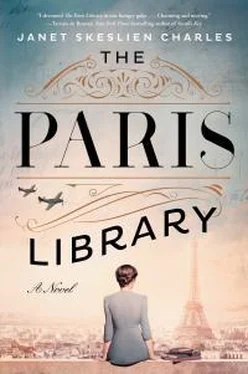
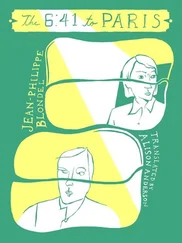
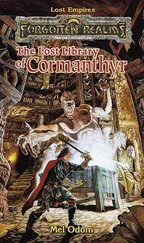
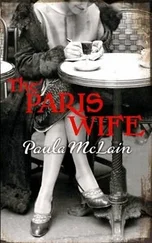


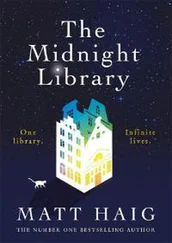
![Джанет Скеслин Чарльз - Библиотека в Париже [litres]](/books/391555/dzhanet-skeslin-charlz-biblioteka-v-parizhe-litres-thumb.webp)




